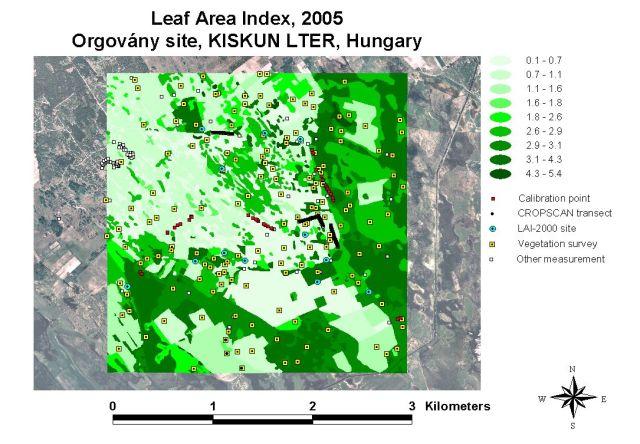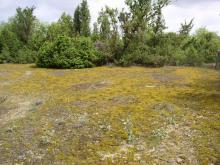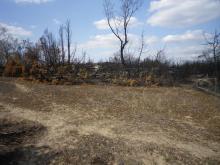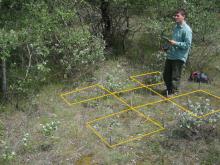Fire is one of the most important human disturbance in Homokhátság and its impact is increasing due to climate change. We monitor the long term post-fire regeneration of grasslands in juniper-poplar forests in two sites (Bugac and Orgovány) in four stands respectively. We sample 10 grassland patches in every stand with five 1x1 m quadrat in each patch. The sampling has been conducted twice a year since 1997 in Bugac and 2002 in Orgovány. This dataset is the longest among the yearly sampled biodiversity datasets of KISKUN LTER.
Space-for-time post-fire succession monitoring
Aims of the project:
- Comparison of succession processes in the grassland phase of the forest on unbunt sites and in different times after the fire events
- Studying the weather dependence of the succession processes
- Studying the modifying effects of wild rabbit (Oryctolagus cuniculus) activity on the succession processes
The field studies are carried on in 10 enclosures of 1 hectare each in Bugac, Bócsa, and Orgovány regions of the Kiskunság.
After the extiction of the wild rabbit in 1994-96, the herbivory treatment had became uneven and of low intensity, and have abandoned since 2005.
Results:
-
Fire increased state-transformation dynamics during the first, second, and third decades of regeneration process as well, thus fire might have an indirect positive long-lasting effect on grassland patch dynamics.
-
The most characteristic effect of fire is the extinction of junipers and decreasing the number of shaded microhabitats. Woody patches increase habitat diversity by producing shaded and more humus-rich habitat patches, which results in the remarkable species richness characteristic of the Sand Ridge vegetation.
-
The result that fire increased the precipitation-dependency of the semiarid sand grassland dynamics supports the concept, that the woody vegetation has a stabilising effect on the grassland dynamics due to shading.
-
Harmful effects of fire, in nature conservation sense, appear on the formerly Juniperus communis dominated mosaics, however white poplar and the grassland part of the forest-steppe vegetation regenerate fast and become more dynamic after fire.
Landscape scale production monitoring in Kiskunság
The studies aim to monitor the correlation between the weather and primary production along environmental and disturbance gradients in a heterogeneous landscape. The 3 by 3 km study site consists of natural or semi-natural grasslands from the open sand grassland to marshland, unburnt and burnt juniper-poplar forest, tree plantations, vineyards, and abandoned farmhouses, a quasi representative collection of the habitats and land use types of Kiskunság. We apply a complex sampling scheme to estimate annual above-ground primary production and leaf are index (LAI). in semi-natural grasslands, along a soil moisture gradient, we use annual cutting and LAI measurement in laboratory, together with field remote sensing by means of multi-spectral reflectance measurement for LAI estimation (on the map below: Calibration point). The LAI measurement are expanded to disturbed grassland sites, i.e. abandoned fields, using the field remote sensing (CROPSCAN transect). In woodlands, we estimate LAI by measuring light intensity pattern below the canopy (LAI-2000 site). We compile annual LAI and production maps using measurement data and detailed habitat map.



